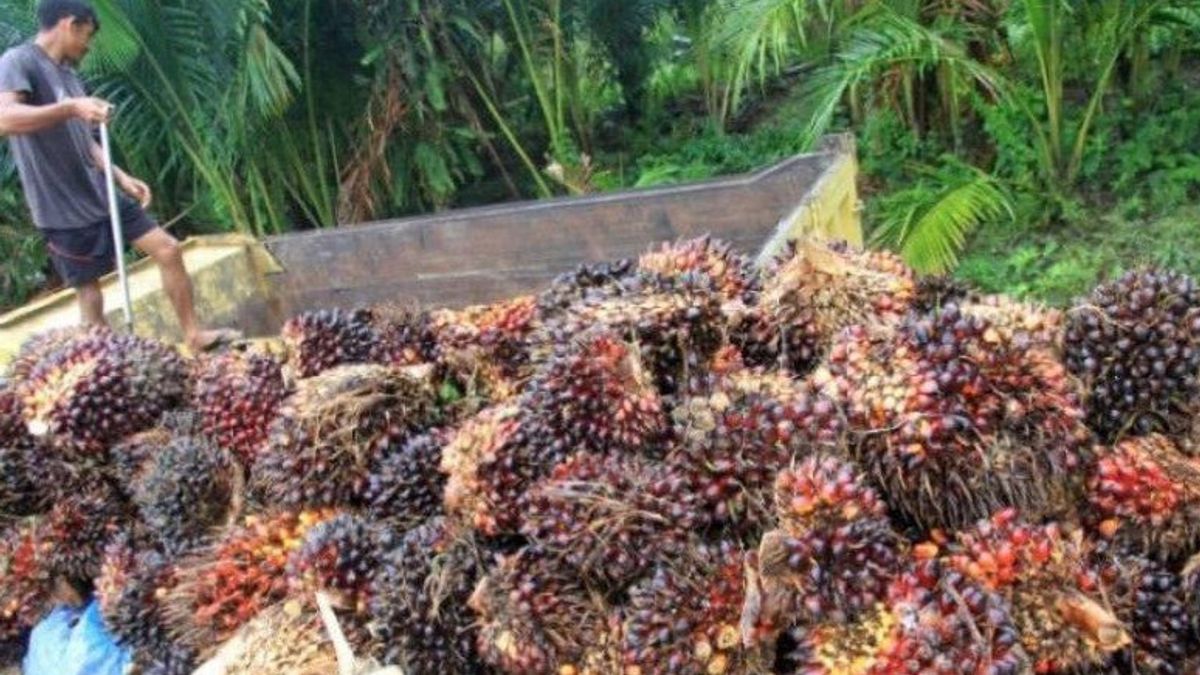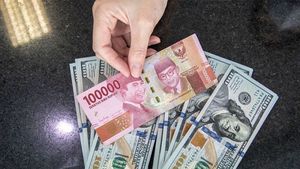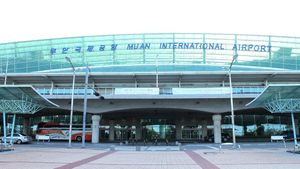JAKARTA - Member of Commission VII DPR RI Mulyanto said the government needs to absorb palm products from smallholder farmers. This follows the price of palm Fresh Fruit Bunches (FFB) which has decreased following the export ban policy.
"The government should provide incentives to them, because the government must be responsible for the policies it decides, especially for those who are most vulnerable to being affected," said Mulyanto in a written statement in Jakarta, Saturday.
According to him, one of the important incentives to relieve smallholder oil palm farmers is to absorb the FFB at a reasonable price, for example by buying and processing mandatory biofuel from smallholder palm oil.
Moreover, he continued, the House of Representatives Commission VII together with the Ministry of Energy and Mineral Resources have agreed to increase the quota of subsidized diesel to 17 million kiloliters for 2022 from the previous 15 million kiloliters.
With the 30 percent biofuel (B30) program, he continued, more than 5 million kilo liters of crude palm oil can be absorbed, especially if this program can be increased to B40 or B50, the people's crude palm oil absorption can be increased.
In addition, he said, state-owned plantation companies and their subsidiaries that process plantation products must be encouraged by the government to increase the uptake of FFB by smallholders.
This step, according to Mulyanto, will be enough to help the smallholder oil palm farmers during the ban on the export of CPO and its derivatives.
To note from the data from the Ministry of Agriculture, in 2019 the people's palm oil area was 5.9 million hectares or about 41 percent of the total national oil palm area.
Meanwhile, BUMN land is only 4 percent. The remaining 55 percent is oil palm land from large private companies. With the export ban policy, the proportion of people's palm oil affected is considered quite large. Previously, the Indonesian Farmers Harmony Association (HKTI) wanted policies related to palm oil not to harm farmers in order to maintain their level of welfare.
"The policy of the palm oil sector should not harm farmers. The government's policy to stop the export of cooking oil raw materials and also the export of cooking oil to overcome domestic stockpiles has had a detrimental impact on oil palm farmers," said HKTI DPN chairman Fadli Zon in a written statement in Jakarta. , Wednesday (27/4).
According to him, the export ban is not a solution, because the cause of the scarcity of cooking oil in the country is not the amount of stock, but a matter of law enforcement related to DMO (Domestic Market Obligations) obligations.
For this reason, HKTI urges the government to immediately revise the export ban policy.
HKTI noted that throughout the COVID-19 pandemic, all sectors of life were severely impacted. However, in the midst of minus 2.07 percent economic growth, the agricultural sector was able to continue to grow positively at 1.75 percent and even export.
The English, Chinese, Japanese, Arabic, and French versions are automatically generated by the AI. So there may still be inaccuracies in translating, please always see Indonesian as our main language. (system supported by DigitalSiber.id)













